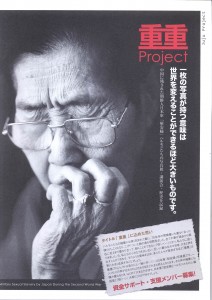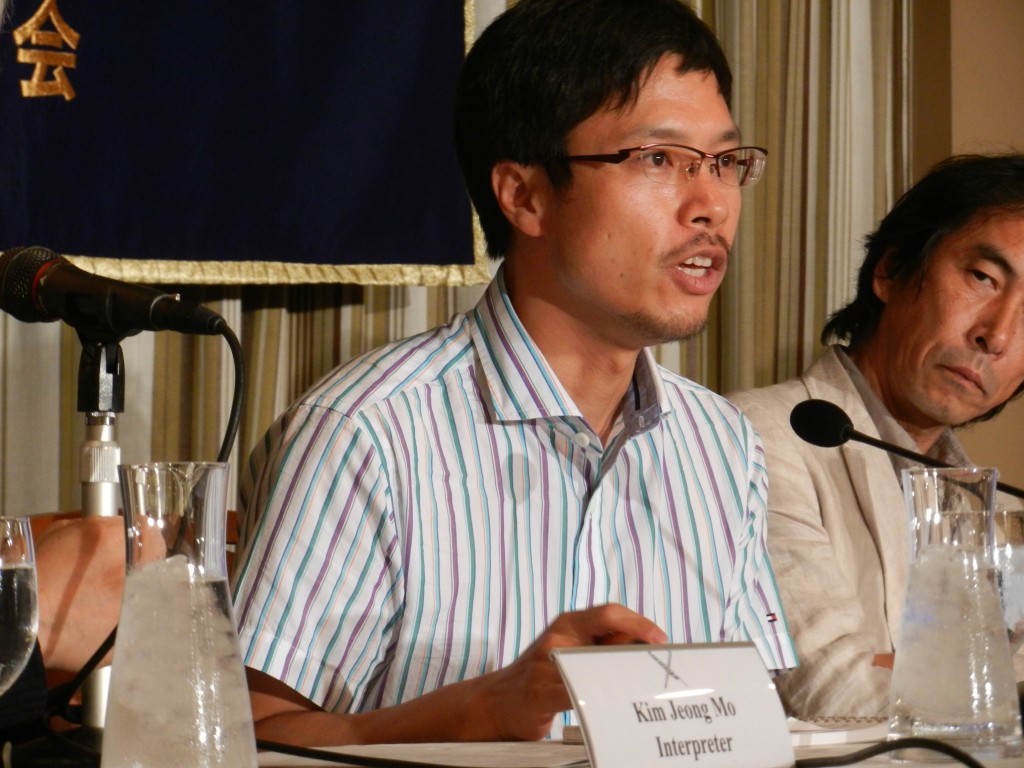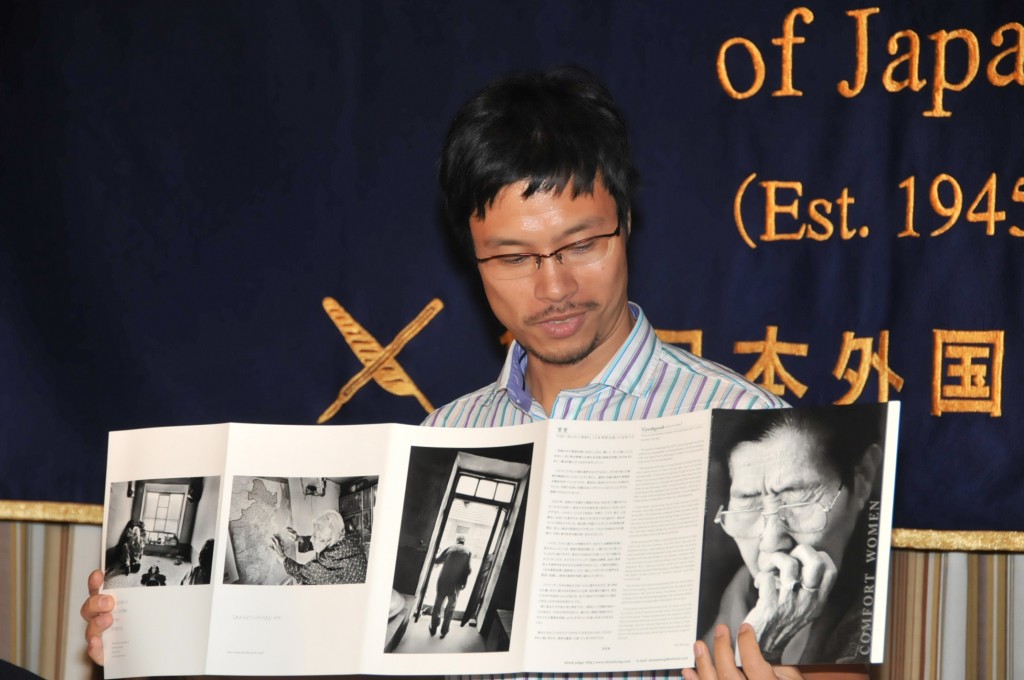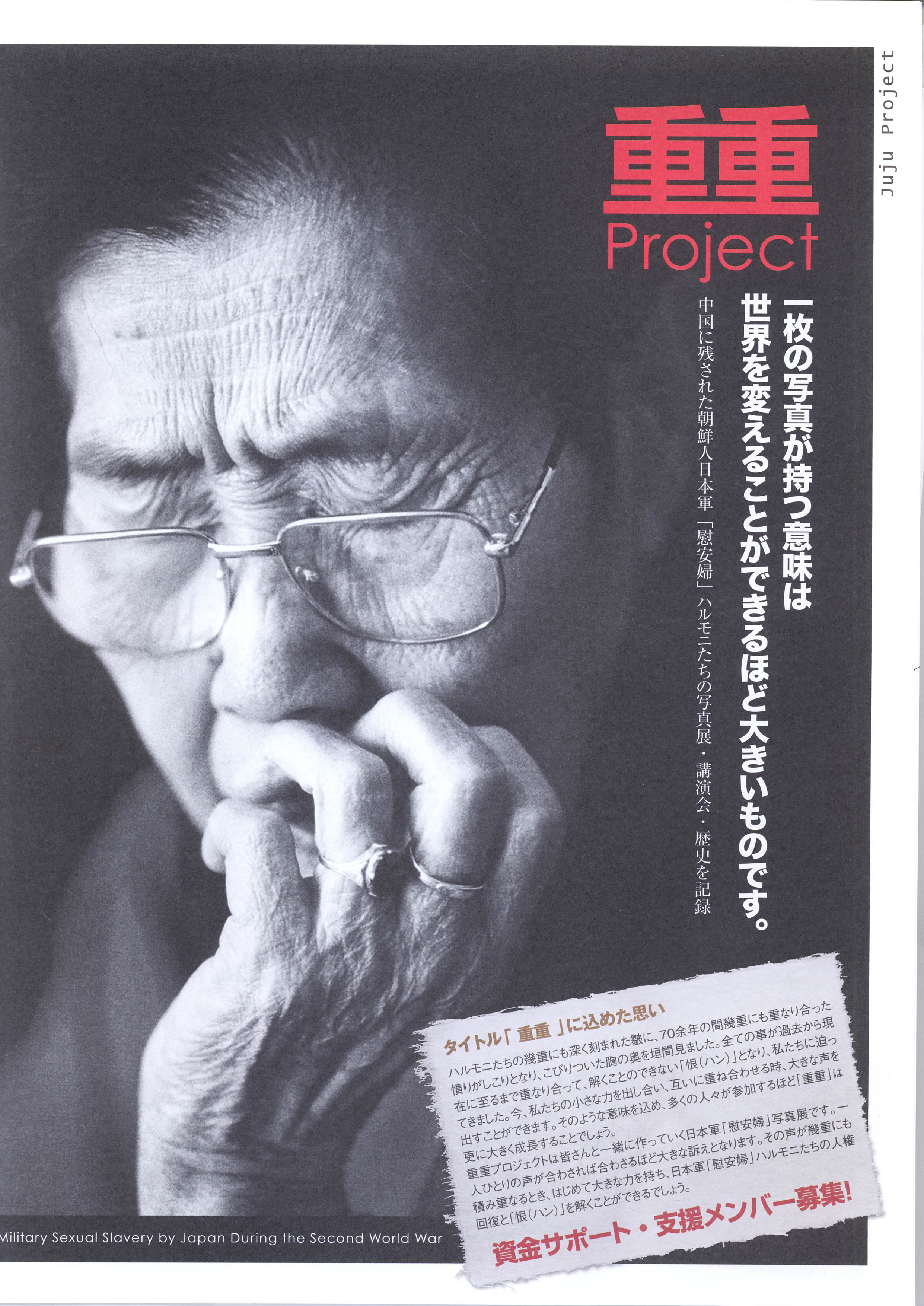The “comfort women” aka 慰安婦 (ianfu) issue is one that divides Japan. Who were the comfort women? They were Korean, Chinese, and sometimes even Japanese women who worked as prostitutes during the Second World War, primarily offering sexual services to Japanese soldiers (There were also Dutch women in Indonesia). Many of the women were coerced into working as virtual sex slaves, while others may have worked on their own initiative, just as many women today still work in Japan’s sex industry. The issue of who ran the brothels aka “comfort houses” during the war was disputed for years but in 1992, Professor Yoshimi a well-known Japanese historian published Japanese archival documents that established the direct involvement of the Japanese military in running a network of military brothels known as “Comfort Houses.” The Japanese government also released over a hundred documents in the same year that supported the research. However, there are still questions as to how many women were coerced into working at the brothels and their living conditions.
However, for Japan’s right wingers and historical revisionists, any suggestion that the Japanese military engaged in human trafficking is anathema. The discussion of the subject and any films, books or exhibitions dealing with the taboo are sure to draw the attentions of these radicals. Therefore, it was not really a huge surprise when Nikon, which had agreed to host a photo exhibition about the comfort women, got cold feet at the last minute.

Korean photographer Ahn Sehong, 41, who married a Japanese woman in 2007 and lives in Nagoya for 3 years, was scheduled to have an exhibition of the portraits and photos of former comfort women at the prestigious Nikon Salon (Shinjuku) starting in June. However, in May of this year, the exhibition was unilaterally cancelled by Nikon without explanation. The exhibition, planned from June 26 to July 9 has finally opened, but not without any problems.
“We are just lending the place,” Nikon officials allegedly told Ahn Sehong, “we cannot help you– if there is any problem we will have to end the exhibition immediately.”
When Ahn Sehong and his colleagues were preparing the exhibition, three lawyers hired by Nikon were systematically after Ahn.
“They were asking me to whom I had talked and what I said, ” said Ahn. The exhibition was only held after a court decision by the Tokyo District Court ordered them to do it.
At a press conference held today at the Foreign Correspondents Club (June 28th, 2012) Ahn said that he felt anxious all the time, fearing that his exhibition might end at any moment.
“I bet Nikon is trying to find any possible reason to stop the exhibition,” he told reporters.
The reasons given by the optical equipment maker Nikon to withdraw the exhibition were unclear at first, but its company representative told Reporters Sans Frontieres (RSF/Reporters Without Borders) that Nikon’s measure “was taken after numerous calls and e-mails criticizing the exhibition.”
According to Ahn, inside the Nikon Salon gallery, when reporters came to ask questions to him, the Nikon lawyers and the guardians prohibited any exchange within the gallery.
“I had to go at the first floor, then walk to the closest park outdoors in order to speak to reporters who came to visit my exhibition. In such situation, I feel that my freedom of expression are denied,” he said.
RSF or Reporters Without Borders, an international organization, which defends the freedom of information, condemned “the move to censor the photo exhibition,” it announced in a press release.
Mr. Naomi Toyoda, representing the JVJA (Japan Visual Journalists Association), who supported Ahn Sehong’s photo exhibition at Nikon with great vigor, said at the press conference that, “every photographer has a message. Each photo exhibition has a political message, but the photos and the photographer must be different. As a photographer myself, I defend freedom of expression at any price.”
Mr. Sehong does not approach his subject lightly and has done substantial research.
“My sources almost all passed away by now. Since 1996, I met 12 former comfort women in China, and about 40 in Korea. They did not know each other but they all told me the same facts”
The RSF in a statement about the problem noted, “ (the) thirty-seven photos and portraits of former Korean “comfort women,” who served at the fronts of the Japanese military camps in Asia, “besides their esthetic quality, supported by documentary research conducted by the photographer since 2001, are an important work of education, which must be shown to as many people as possible, without political consideration,”
The topic of the so-called comfort women is indeed embarrassing for Japan, however, in 1993, Yohei Kono, then Chief Cabinet secretary, issued a statement acknowledging that Japan organized during the war a brothel program for its military men, and offered an apology to Korea. But the Japanese government has always refused to pay individual compensation to these women.
Ahn Sehong told journalists in Tokyo that, his project started in 1996, when he first met a Korean old lady living in China, who used to be a comfort woman at the Japanese military front when she was younger. Most of the comfort women were taken away from their houses at very young age. “I wanted to help these old ladies to express their experience. If you look at the photographs, they speak for themselves. Their story needed to be told and remembered. And the Japanese people should also know about these facts.”

The RSF stated that, “it would be unacceptable that Nikon, a private company held in high regard by the world of photography, should become an accomplice to censorship.” RSF also urged the Japanese authorities to “determine if intimidation was perpetrated by individuals opposed to the work of the photographer,” and launch an investigation.
Dozens of Japanese ultra-nationalist group members, uyoku, have demonstrated in Yurakucho, in front of the Foreign press club building to remind their message, which is that these Korean comfort women never existed. The tirades run along the line of: “The comfort women were professional prostitutes not victims, and the photographer is mediocre too!”
At the Nikon Salon, in Shinjuku, a full security management is deployed: heavy metal detectors and guardians are stationing in every corner of the exhibition hall.
According to a FCCJ staff member, some leaders of the right wing groups tried to enter the Yurakucho Denki Building, where the Foreign Correspondents Club is based. They were denied entry.
Ahn Sehong’s family also had to move from their home in Nagoya, for fear of the multiple threats they have received. “I got pressured by Japanese Right Wing groups over time. After Nikon announced the withdrawal of the exhibition, my private contact details were released on the Internet. I received many phone calls and e-mails teaching me that the Korean comfort women never existed,” he said, “some messages said ‘you should die.’”

A BRIEF EXPLANATION OF THE EUPHEMISM OF “COMFORT WOMEN”
The term “comfort women” is a euphemism describing the Asian women, mostly Koreans, who were enrolled to serve as sex workers for the Japanese military troupes during the WWII. The estimates of the number of women involved in this forced sex industry is a huge controversy even in the present days among Japanese, Korean and Chinese scholars. Some Japanese estimate the numbers to “as low as 20,000,” whereas some Chinese scholars estimate the numbers “as high as 410,000,” depending on the definition of the victims. The exact number is still being researched and debated.
A good discussion of the issue can be found at The Washington Coalition for Comfort Women.

Thanks for the well-written, even-handed article. It seems a bit strange to me that neither the author of this piece nor the photographer feel that Nikon’s original organization of the show was a positive step. Only their reluctance to deal with the protests. Were it not for Nikon’s original risk, the show wouldn’t have come up before the courts and wouldn’t be shown.
I may be speculating unfairly, but it’s hard to think there were no implicit threats from the far right over the show.
You know, you actually make a really good point. That Nikon even planned to do the show was a gutsy move. I wonder what happened to the guy who agreed to do it or planned it. It’s something that we should have asked and will attempt to find out. Thank you.
[…] “‘Comfort women’ show makes Nikon uncomfortable but not Tokyo courts”, Japan Subculture Research Center, 28 June; here […]
Is there a similar Japanese denial about atrocities committed in the war in China? I was in Beijing for the 40th anniversary of the end of the war. CCTV ran non-stop dramatic reenactments of Japanese soldiers shouting ‘banzai’ as they run bayonets thru Chinese babies. It’s no wonder the Chinese despise Japanese in-your-face annual celebration of these Japanese perpetrators. Forced prostitution pales in comparison to these war crimes, in a nation that yawns when a young man sells invitations to a dinner at which his cooked genitals are the only item on the menu. Should anything surprise us? Japanese liberals are up against a formidable intimidation. Kudos to this photographer.
Yes, talking about Japanese war crimes is taboo. Generally they deny they did anything in China, and the “Rape of Nanking” is just some noise created by Chinese people to make Japan look bad. They don’t even teach what they did in their schools, which is pathetic. I know Americans grew up learning about how we dropped the bomb on Hiroshima and Nagasaki, and questioning if that was the right thing to do. I personally believe it was not, but at least we were informed of that part of our history.
Dear Friends PHOTOGRAPHER
Great job Same Kind of job i have congratulation
Best Luck
“A BRIEF EXPLANATION OF THE EUPHEMISM OF “COMFORT WOMEN”
The term “comfort women” is a euphemism describing the Asian women….”
Sorry, can’t find a link right now, but Dutch women in Indonesia were also forced into sexual slavery, not only Asian women.
Thanks for your work!
Yes, that should be corrected. Thank you.
any indication if there is a companion book for this exhibition, and if there might ever be a translation? It’s always good to have powerful images as reminders of what the political class wants us to forget…
I want to know if Nikon has any explanation for this story? I still can’t believe Nikon would do it. I am a Nikon fan and a Nikon user! As a Nikon user, i feel sad that Nikon became an accomplice to censorship. Anyhow, if Nikon censored the freedom of information to distort the history then i will never use Nikon products again! I don’t want to be a part of supporting censorship of freedom of information, the truths, stories, and messages by purchasing Nikon products. I am sure Canon will be very happy by, now! I wonder if Canon would react the same like Nikon if the exhibition was held at on of the Canon’s center?
[…] read Categories: Historical Issues, Military Sexual Slavery tel: 604-313-6000 | email: office@alpha-canada.org […]